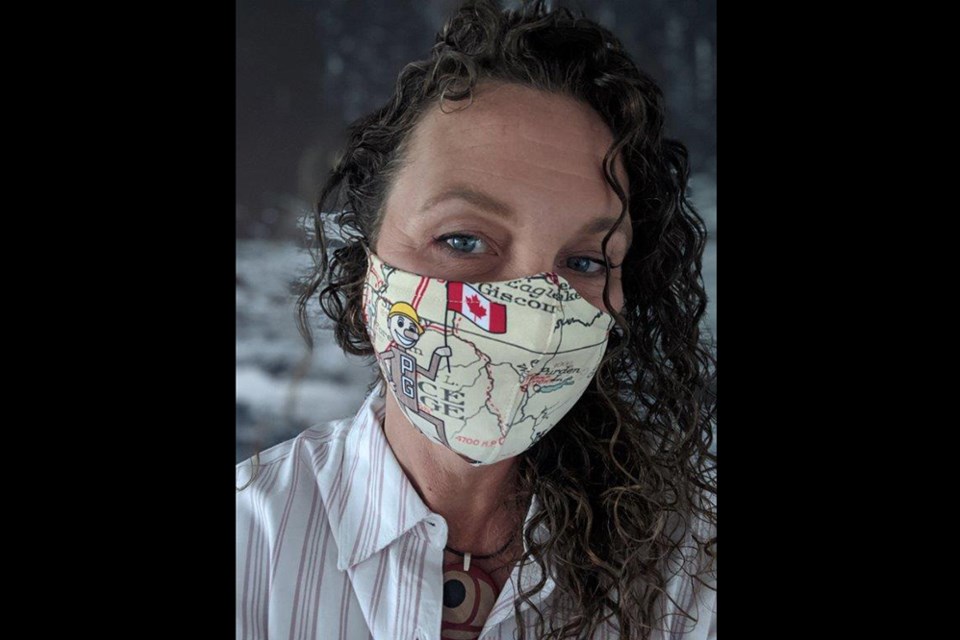The following column was submitted to PrinceGeorgeMatters from Tracy Calogheros, CEO of The Exploration Place Museum and Science Centre, and president of the Canadian Association of Science Centres (CASC).
Canadians are, by and large, a curious group; eager to learn, to experiment and to grow.
The Canadian Science Centre Industry, just now hitting their stride with 50 years behind them, has always understood that about us, finding innovative ways to deepen our collective understanding of the world we live in.
A cursory glance south of the border immediately draws into sharp focus the importance of scientific literacy to public health and to our collective well-being during multiple, global crises.
This virus does not know for whom you voted, and science does not care what you believe; “alternative facts” will not protect us and wishful thinking will continue to kill thousands world-wide. It is Canada’s investment in scientific research, commitment to global citizenship and education, as well as individual Canadians’ understanding that we are tied to each other through our intricately interconnected societal ecosystem, which has protected us as we continue navigate this pandemic; our science centres are a key partner in this work.
As Canadians followed the directions of our top medical scientists, retreating to the relative safety of our “bubbles” our science centres had already closed their doors and leapt to providing free, on-line content for all us; content we knew we could trust to be up-to-date and accurate; unbiased and non-partisan.
At the same time, parents were learning how to be educators with students shifting to at home learning and again, our science centres stepped up as essential partners in that endeavour, providing free virtual programs, downloadable lesson plans and interactive live demos.
“The Exploration Place Museum and Science Centre has always been a community forum, a safe place for difficult discussions,” says Shauna Harper, Exploration Place Board Co-Chair.
“When we closed on March 13, we were the first in the community to do so and while it was a difficult choice to make at the time, it was clearly the right one.”
Some eight million (over a third of our population) Canadians a year typically visit their science centres, creating strong foundations for the jobs of tomorrow in STEAM (Science Technology Engineering Arts and Math).
Since our centres closed mid-March millions more have connected with them on-line.
The challenge now, as we are living in anything but typical times, is how to properly resource our science centres to both continue the important work they have always done, and are doing right now, while they are also rethinking what experiential learning and hands on discovery looks like in a post-COVID world.
No kid wakes up at 18 and decides that they want to be an engineer or an epidemiologist unless they have grown up excited about scientific endeavour. Our science centres are the incubators for tomorrows astronauts (think Chris Hadfield) and medical professionals (think Dr. Bonnie Henry). If we are to weather the next pandemic even better than we did this one, if we are to have a hand in shaping global approaches to climate change rather than being a passenger on the ride, we need our science centres now more than ever.
In those countries where the wearing (or not) of a mask has become a political statement; where blatant falsehoods and half-truths are spouted by leaders, where science itself has become politicized, planking the curve is a pipe dream.
In Canada, where our elected leaders set aside partisan politics and followed the guidance of top scientists it is a far different story and result. Critical thinking does not happen by accident. Critical thinking across a population requires planning, effort and time. Canada, since cutting the ribbon on the Ontario Science Centre 50 years ago, has tackled that challenge; crafting a cross-country industry with the collective goal of not just raising the level of scientific understanding in the broad population, but weaving science culture into the fabric of our society.
“Our Museum has been here since 1974 and we will be here in 2074 too,” added Harper.
“Northern British Columbia has embraced innovative and entrepreneurial thinking and the Exploration Place has been a key driver in that evolution.”
There are many reasons to be excited about our future, even as we stare down this virus that is working so hard to divide and isolate us.
Canada’s Science Centres are standing shoulder-to-shoulder with us; giving us the tools, the inspiration and the community we need to be able to adapt to, and take advantage of, an unknown tomorrow. All things evolve, especially societies.
Canada has always had the foresight and imagination to plan for that future just beyond the horizon and our science centres feed the science culture super-power that lets us help guide that evolution, rather than simply be subject to it.


